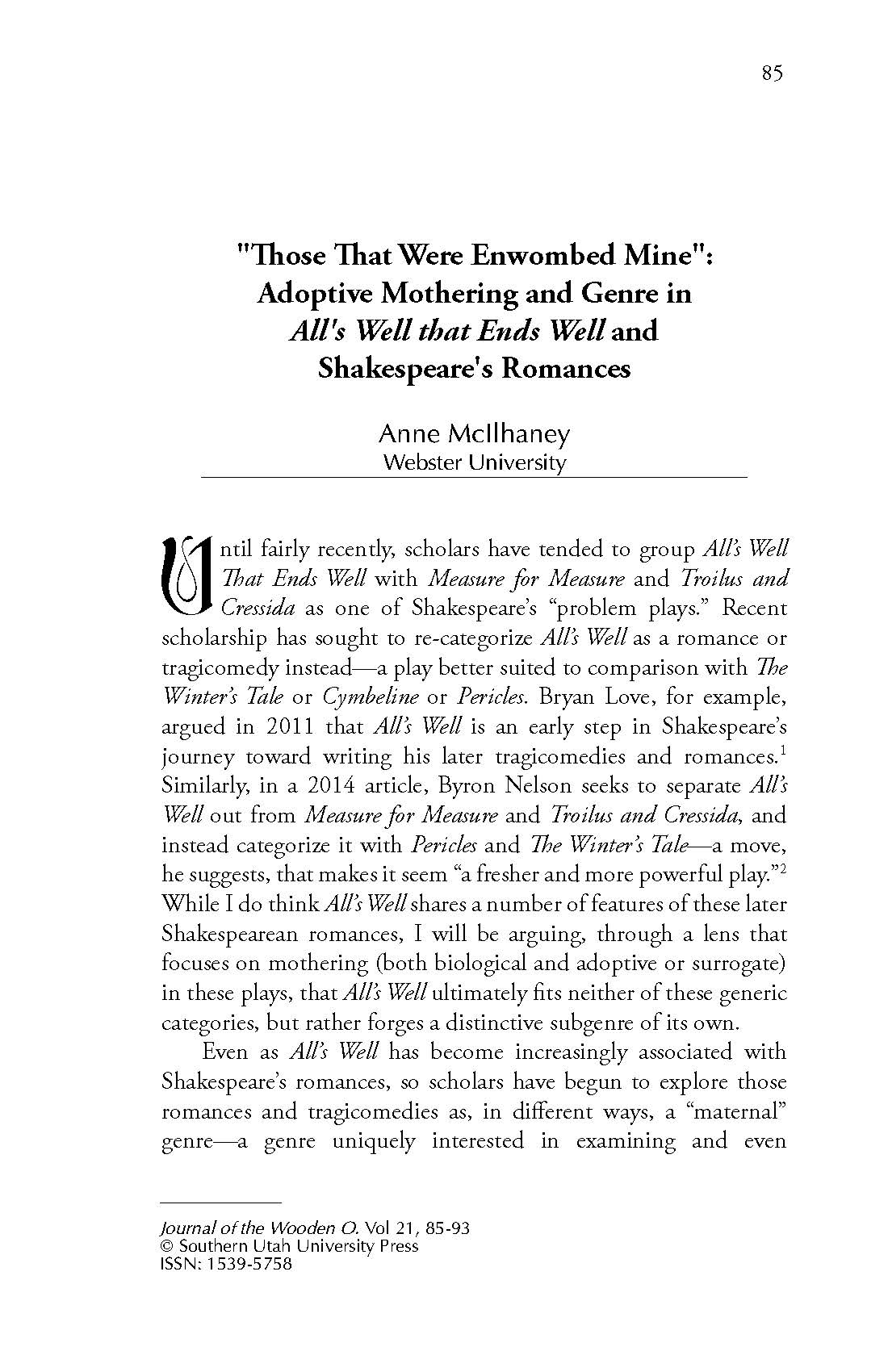"Those That Were Enwombed Mine" Adoptive Mothering and Genre in All's Well that Ends Well and Shakespeare's Romances
Main Article Content
Abstract
Until fairly recently, scholars have tended to group All’s Well That Ends Well with Measure for Measure and Troilus and Cressida as one of Shakespeare’s “problem plays.” Recent scholarship has sought to re-categorize All’s Well as a romance or tragicomedy instead—a play better suited to comparison with The Winter’s Tale or Cymbeline or Pericles. Bryan Love, for example, argued in 2011 that All’s Well is an early step in Shakespeare’s journey toward writing his later tragicomedies and romances.1 Similarly, in a 2014 article, Byron Nelson seeks to separate All’s Well out from Measure for Measure and Troilus and Cressida, and instead categorize it with Pericles and The Winter’s Tale—a move, he suggests, that makes it seem “a fresher and more powerful play.”2 While I do think All’s Well shares a number of features of these later Shakespearean romances, I will be arguing, through a lens that focuses on mothering (both biological and adoptive or surrogate) in these plays, that All’s Well ultimately fits neither of these generic categories, but rather forges a distinctive subgenre of its own.
